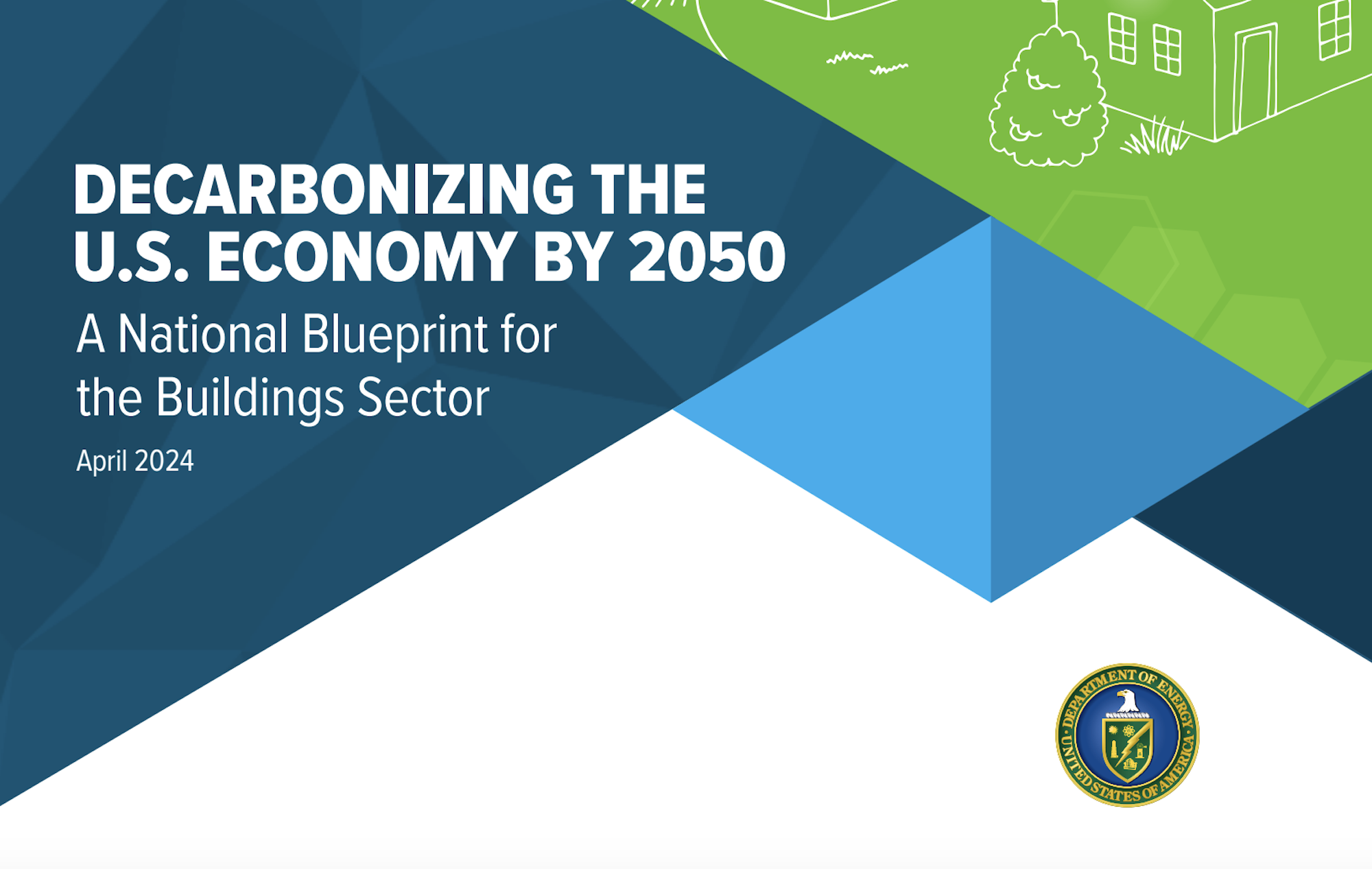The Biden Administration recently released “Decarbonizing the U.S. Economy by 2050: A National Blueprint for the Buildings Sector,” a comprehensive plan to reduce greenhouse-gas (GHG) emissions from buildings by 65% by 2035 and 90% by 2050.
The Blueprint is the first sector-wide strategy for building decarbonization developed by the federal government. It outlines ways to reduce energy in homes, schools, and workplaces.
To reach the emissions reduction targets for the buildings sector, the Blueprint sets four strategic objectives:
• Increasing building energy efficiency
• Accelerating onsite emissions reductions
• Transforming the interactions between buildings and the electricity grid
• Minimizing the emissions from producing, transporting, installing, and disposing of building materials
Each objective has specific performance targets and market, policy, and technology milestones to reach by 2035 and 2050. Meeting these targets will require accelerated deployment of a wide range of decarbonization and energy efficiency technologies. The Blueprint outlines coordinated federal actions that can increase the speed and scale of solutions deployments. Those actions include funding research and development to develop lower-cost technologies, expanding markets for low-carbon technologies, providing direct funding and financing, and supporting the development and implementation of emissions-reducing building codes and appliance standards.
The Department of Energy, a key player in the administration’s decarbonization drive, is focused on building innovations in three pivotal areas: building upgrades, efficient electrification, and smart controls.
Related Stories
Codes and Standards | Jun 2, 2021
Dept. of Energy releases EnergyPlus and OpenStudio updates
New features include Python Plugin features and additional tabular reporting options.
Codes and Standards | Jun 1, 2021
Federal plan to double Canadian lumber tariffs draws intense criticism
Builders advised to stock up to deal with shortages.
Codes and Standards | Jun 1, 2021
Passive House standards proving their worth in multifamily sector
Energy performance beats conventionally built by 32% to 58%.
Codes and Standards | May 27, 2021
Pittsburgh combats construction fraud
Crackdown on tax, insurance, and workers’ comp malfeasance.
Codes and Standards | May 26, 2021
Proposal to add photovoltaic panels to the R2 Standard for electronics recycling
Hundreds of facilities in 33 countries could begin recycling PVs.
Codes and Standards | May 25, 2021
International Energy Agency lays out roadmap to net zero
Focus is on energy generation, but building efficiency also plays a role.
Codes and Standards | May 24, 2021
Biden Administration will make new investments in building energy efficiency
Focus on grid-interactive buildings; Energy Star expansion; new targets for energy, water reduction.
Codes and Standards | May 20, 2021
Solar panel trade group issues guidelines to rid use of components built with forced labor
Growing concern that PV industry is dependent on work camps in China.
Codes and Standards | May 19, 2021
Smart electric panels can aid transition to renewable energy
Allow customers better control of circuits; utilities can better manage demand.
Codes and Standards | May 18, 2021
Cross-laminated timber performs better than expected in shear test
Tests conducted in support of new criteria for design of CLT diaphragm.

















